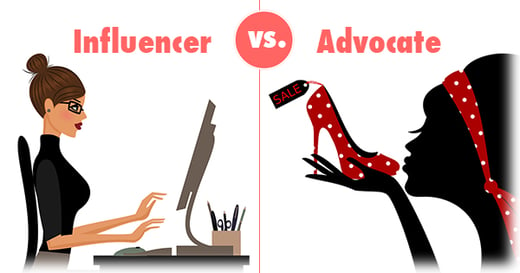Today on SocialMediaToday.com Digital Strategist and blogger Jacob Curtis shared a post on the impact of becoming an employee advocate by using your own network (or building one) to spread the message of the brand you work for, bringing your company positive outside attention from a new audience.
It's a great write-up with some excellent metrics showing the impact that Jacob's efforts had on overall discussions regarding and interactions with the company he works for.
Let's cover some of the considerations to keep in mind when starting an employee advocacy program, and what some of the benefits as well as the potential drawbacks could be, both for the employee and the brand. We'll also discuss how to avoid potential pitfalls when starting out!
What should you keep in mind when starting an employee advocacy program?
Jacob is a special case in that his large and relevant following already existed prior to his start as an employee advocate. With few exceptions, most budding advocates will have to build their own following, either on their own time before pitching the idea, or with the support and resources of their employer.
- Your focus now and forever is on quality, not quantity. Don't buy likes and don't advertise your account to people that aren't relevant to your employer's brand just because they're cheaper followers. If you want to have a real impact, you need to be speaking to real people who will really care.
- As Jacob pointed out in his article, the ideal employee advocate is someone who takes pride in the company they work for and the work they do. You can't make just anyone into an advocate. There has to be genuine passion for the company and its mission. If there's not, it will hurt the message.
- As with your audience building activities, you also need a focus on quality content which is valuable to your target audience. If you want the real deal, then the employee advocate should be the one to produce this content. They can certainly reach out to other subject matter experts inside the company for help, but they need to own and manage the creation and distribution of the content that has their name on it. Not an agency, not a ghostwriter. Nobody has a better understanding of the audience than the person who cultivated and interacts with it one on one on a daily basis.
What are the benefits for the employee?
- Employee advocates can become celebrities in their own right, growing a large and trusting following that makes them more valuable to their current and future employers.
- Advocates also get to enjoy more public recognition for their work that few outside of the C-suite ever get to experience.
- Advocacy can also give some employees a feeling of more direct impact on the success of their company than their current day-to-day responsibilities provide.
What are the benefits for the brand?
- Jacob is correct in pointing out that people trust other people far more than they will ever trust brands. As long as the advocate can establish themselves as someone who provides valuable insight and is seen as an expert instead of as a mouthpiece for the brand, their insights and opinions will be valued far more than any corporate blog post.
- Advocates also serve to bring positive attention to brands indirectly. Robert Scoble is a good example of this. He doesn't spend the majority of his time talking specifically about Rackspace, but his continued success and popularity in the tech industry reflects positively on Rackspace as well.
- When properly integrated into a social strategy, advocates can help amplify reach, find or create conversations with key influencers outside of the company, and work together with a brand's social team to drive the needle on solid business goals as well.
As Jacob mentions, there is always the risk to the employer that the employee will move on quickly, taking their following and the massive investment of company resources with them, and this is indeed a commonly cited concern amongst brands when faced with the prospect of using company time and resources to build a personal brand for an employee.
However, employee advocacy is just another form of investing in your employees. Just as with employee training, it is an investment that is more likely to pay off in the long run than in the short term, but when it does, you'll be glad you made that investment.
Tags:
Brand AdvocacyJan 8, 2015


